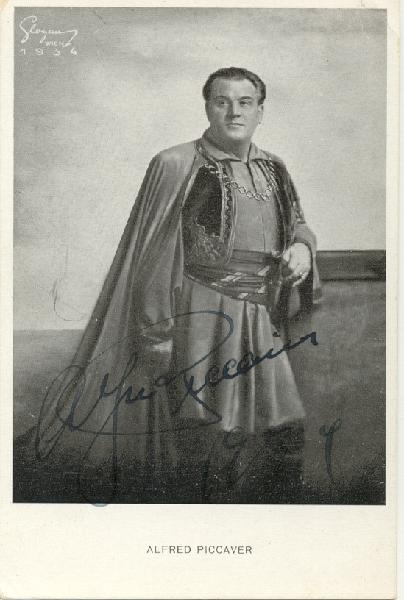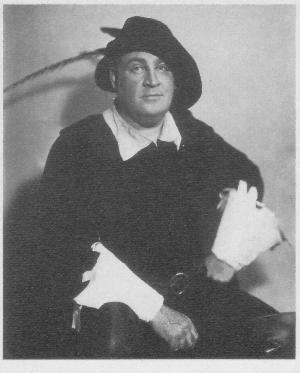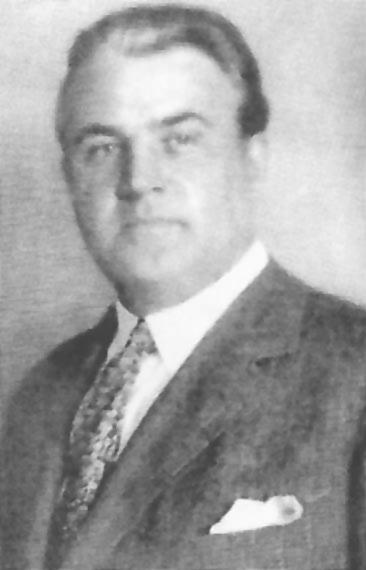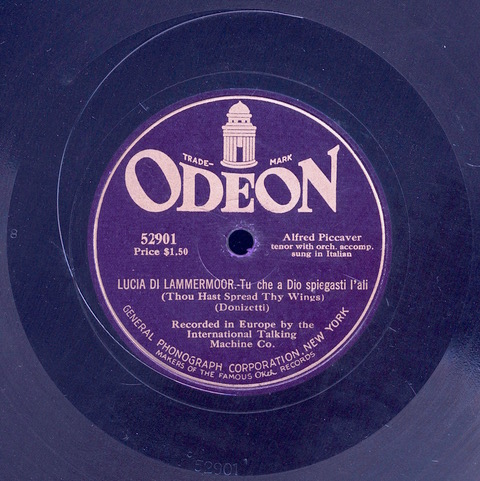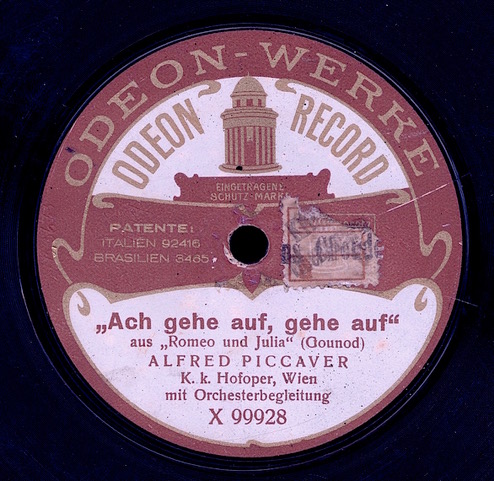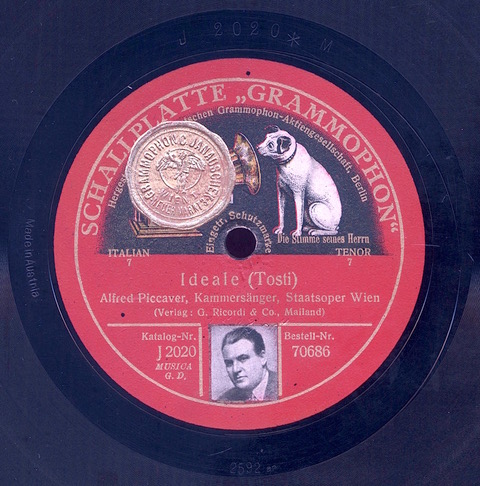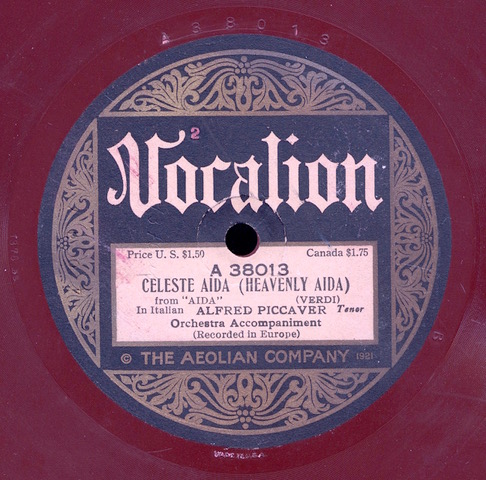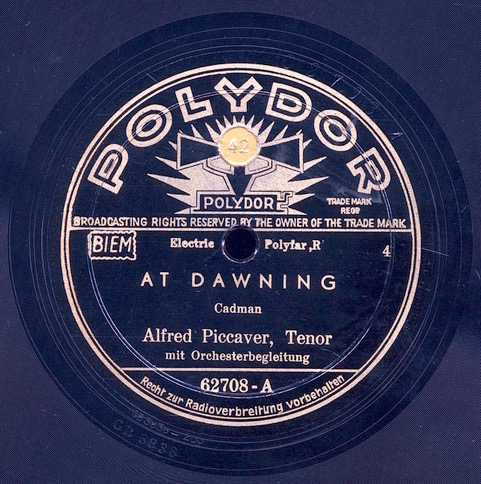He was born in Long Sutton, Lincolnshire, but before he reached the age of two, his parents emigrated to the United States of America and took out American citizenship.
Piccaver was trained as an electrical engineer but he had a talent for singing and in 1905, he enrolled at the Metropolitan School
of Opera. The school's director Heinrich Conried recognised his considerable vocal ability and in 1907 sent the young Piccaver
to Prague, where he studied with Ludmilla Prochazka-Neumann (1872–1954).
His studies led to a three-year contract with the Deutsches Landestheater in Prague where he made his debut on 9 September 1907
in Otto Nicolai's Die lustigen Weiber von Windsor. In the following three years, he sang in operas by Flotow, Verdi, Wagner, Mozart,
Puccini and Gounod. This variety stood him in good stead, because in 1910, he was invited to appear as a guest
in Mattia Battistini's touring company that was performing in Prague. He must have impressed Battistini because Piccaver
was persuaded to travel with the company to their next venue in Vienna where the Vienna Hofoper
showed an interest in him.
However, he continued to sing with the Prague company for the remainder of his contract and it was not until 6 September 1912
that he gave his first performance with the Vienna State Opera as a permanent member.
His roles included Rodolfo,
Cavaradossi, Canio, Radamès, Florestan, Lenskij and Walther. He made a large number of recordings by both the acoustic and
electrical processes.
Piccaver loved Vienna and the Viennese way of life, so much so that when the director of the Met, Giulio Gatti-Casazza,
made a lucrative offer for him to appear at the Met, he turned it down. He was never asked again.
In return, the Viennese were
devoted to 'Picci', as he was affectionately known. When the First World War broke out, Piccaver as an American citizen
was unaffected, though when the United States joined the war in 1917 he was found trying to leave the country but was spared
internment if he agreed to continue singing at the Vienna opera.
After the war his career at the Vienna State Opera was interrupted by appearances in Chicago in 1923, 1924 and 1925 and at
Covent Garden, in 1924, the only year in which he appeared at that house.
In 1923, for reasons that are not clear, he claimed British nationality as he was entitled to do as a result of his place of birth,
though Alfred Piccaver always considered himself an American. On 31 December 1931 his contract with the Vienna State Opera was
terminated as a result of a dispute over his salary. He continued to live in Vienna and to make guest appearances in opera
in Austria and abroad, but with the political situation in Austria worsening he decided to return to Britain in 1937.
He made some records and concert appearances in London and even appeared on the BBC's fledgling television service in 1939.
After the war he returned to Vienna for the re-opening of the Vienna State Opera house in 1955 and decided to stay.
He died in his favourite city on 23 September 1958. The Austrian government gave him a state funeral.
His urn is buried at Feuerhalle Simmering in Vienna.
Reference
